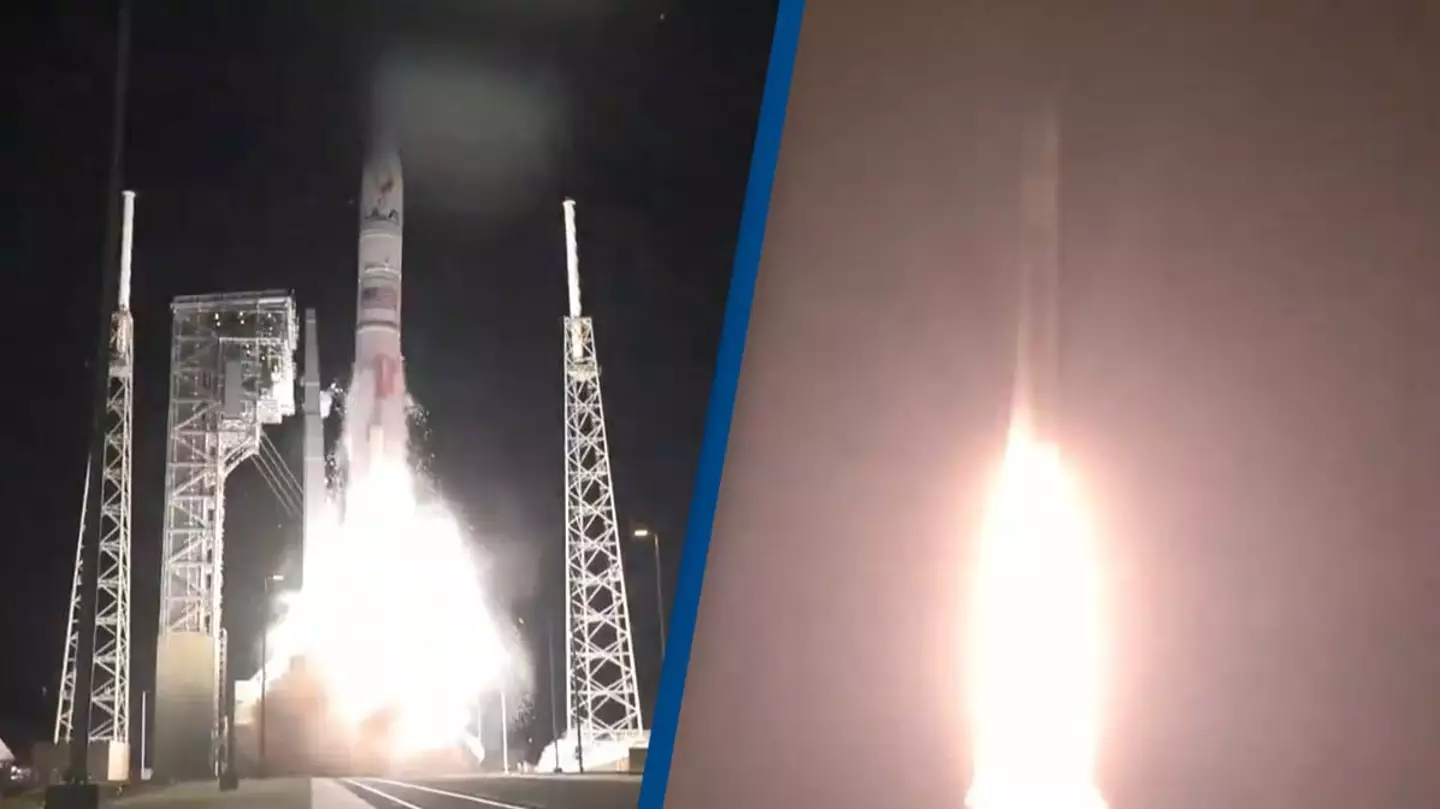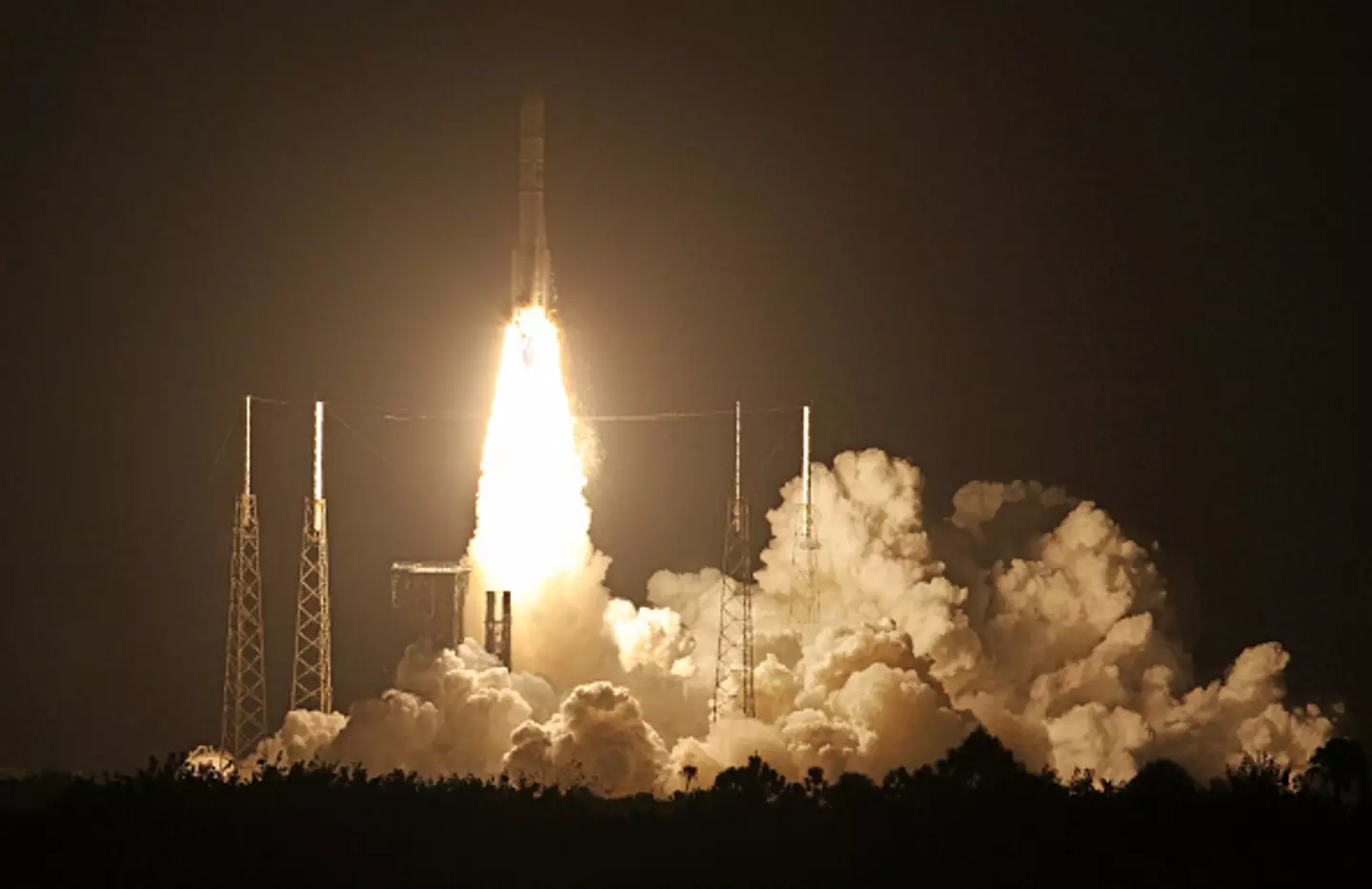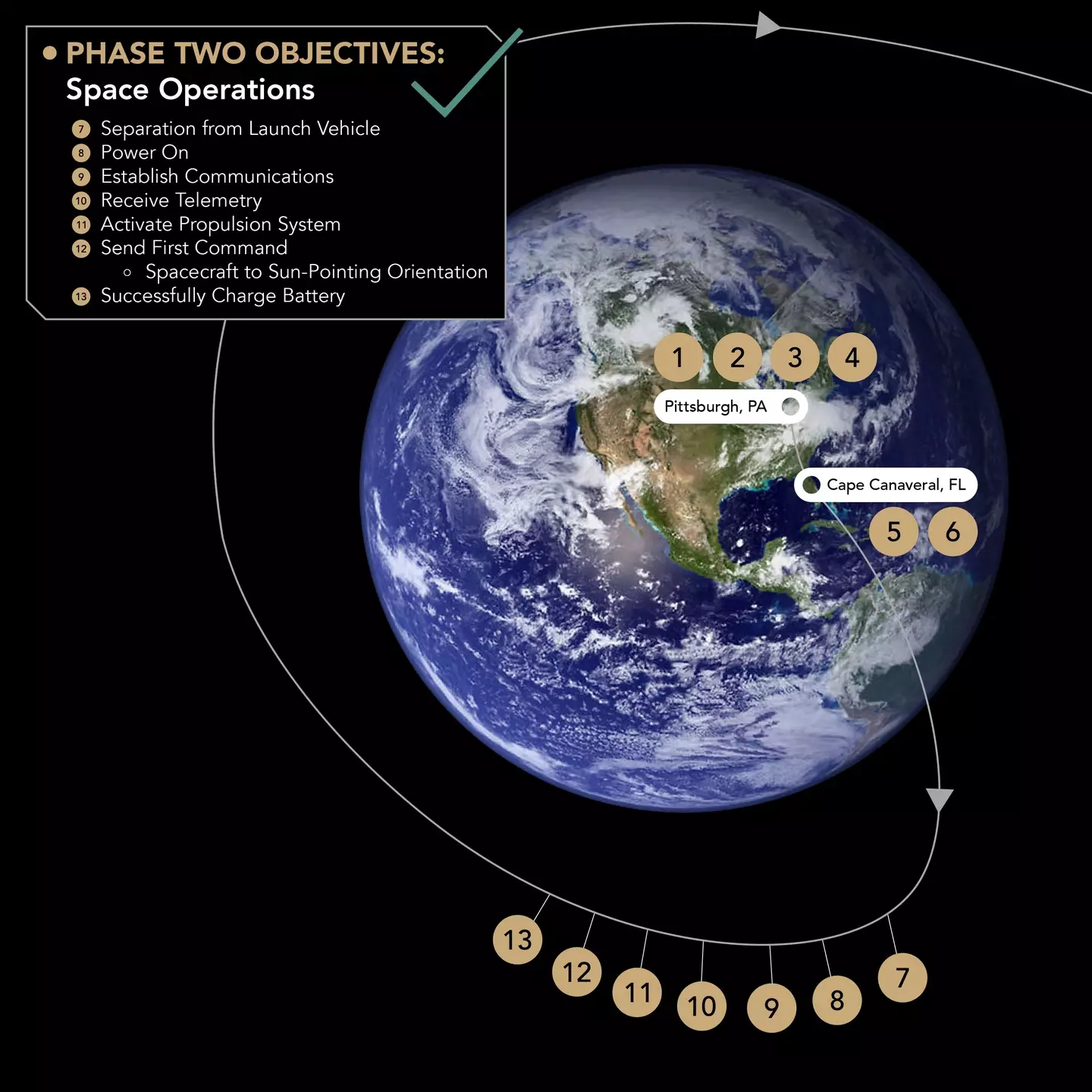
The first American attempt to land on the moon in 50 years has encountered a problem shortly after take-off.
Astrobotic technology - a Pittsburgh Aerospace Company - launched its Peregrine Lander onboard the United Launch Alliance's Vulcan Rocket earlier today (8 January) from Cape Canaveral, Florida.
However, around seven hours later, the company released an update revealing an 'anomaly' had occurred within the private moon mission.
Advert
The Peregrine Lander 'precisely and safely delivers payloads to lunar orbit and the lunar surface. Payloads can be mounted above or below the decks, inside or outside of enclosures, and can remain attached or deployed according to their needs,' according to Astrobotic's website.
A payload in space is the part of a spacecraft which produces data about a mission and relays information to Earth - and the Peregrine is carrying 20 payloads, including five NASA science instruments, CNN reports.
The Peregrine Lander has 'five distinct mission phases' according to Astrobiotic. It's already completed the first - being built and checked over before take-off - and the second, separating from the Vulcan Rocket.
However, shortly after it separated from the rocket, it ran into an issue.

Astrobotic said in a statement on X - formerly known as Twitter - earlier today (8 January): "After successfully separating from United Launch Alliance's Vulcan rocket, Astrobotic's Peregrine lunar lander began receiving telemtry via the NASA Deep Space Network.
"Astrobotic-built avionics systems, including the primary command and data handling unit, as well as thermal, propulsion, and power controllers, all powered on and performed as expected.
"After successful propulsion systems activation, Peregrine entered a fully operational state.
"Unfortunately, an anomaly occurred, which prevented Astrobotic from achieving a stable sun-pointing orientation.
"The team is responding in real time as the situation unfolds and will be providing updates as data is obtained and analyzed."
But why is 'a stable sun-pointing orientation' needed?

Well, the lander needs to 'charge its battery' to be able to function and communicate with Earth.
And in the latest update, Astrobotic has revealed the 'most likely' cause of the 'unstable sun-pointing' is a 'propulsion anomaly' - propulsion being to do with the acceleration of the spacecraft.
"As the team fights to troubleshoot the issue, the spacecraft battery is reaching operationally low levels," it continues.
Astrobotic explains an 'improvised maneuver' was carried out by the team to try and 'reorient the solar panels towards the Sun' and after this, the spacecraft 'entered an expected period of communication loss'.
If the team are right and the unstable sun-pointing is being caused by a propulsion anomaly, then Astrobotics believe it could 'threaten the ability of the spacecraft to soft land on the Moon'.
It resolves: "We will provide more updates as Peregrine comes in view of the ground station again'.
Topics: NASA, Space, US News, World News, Technology